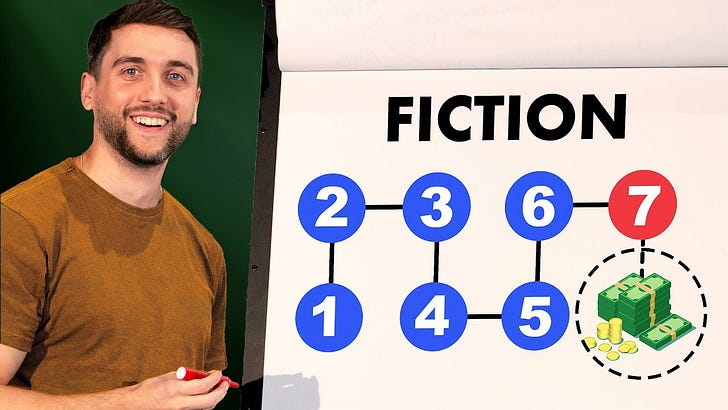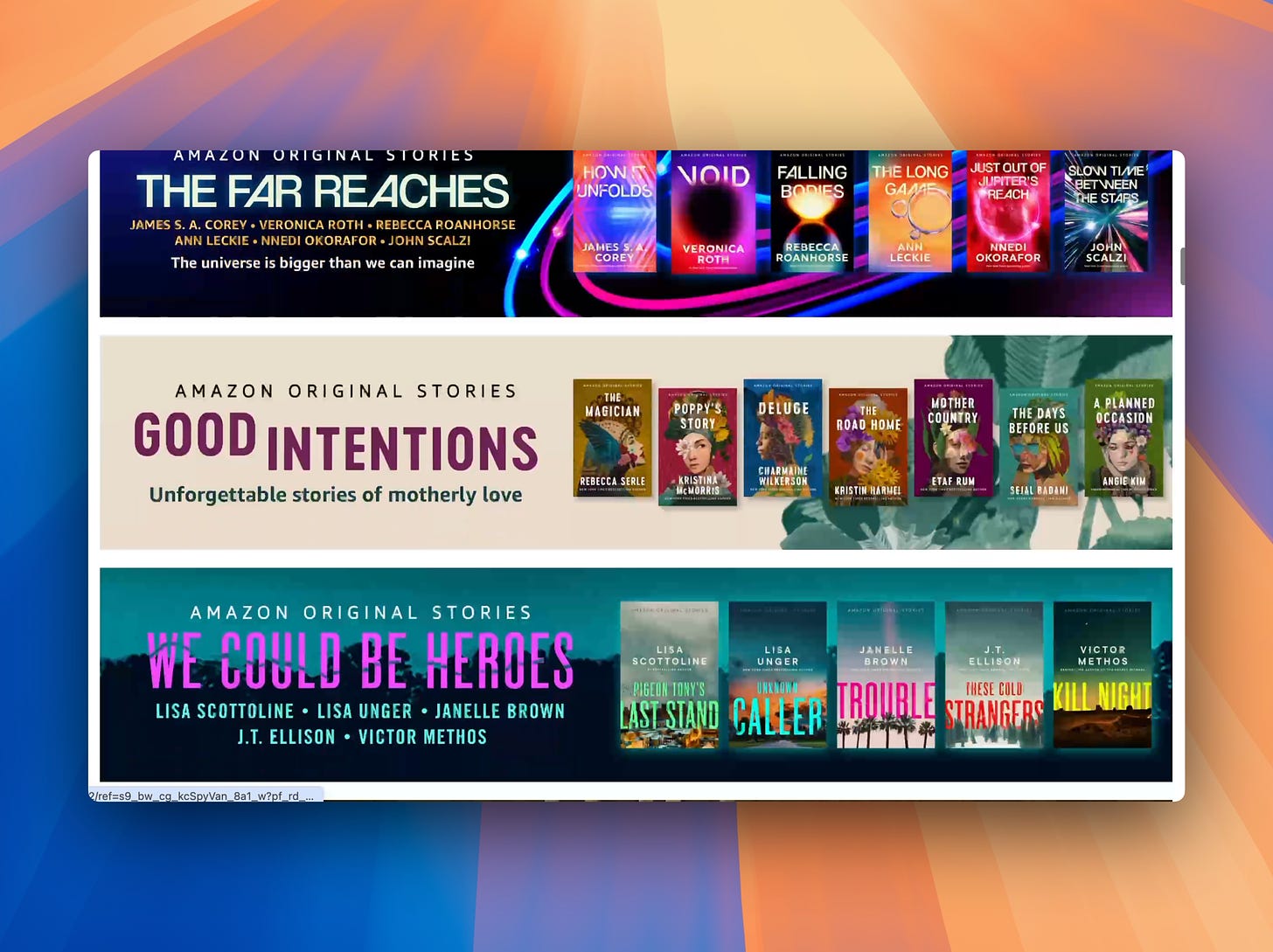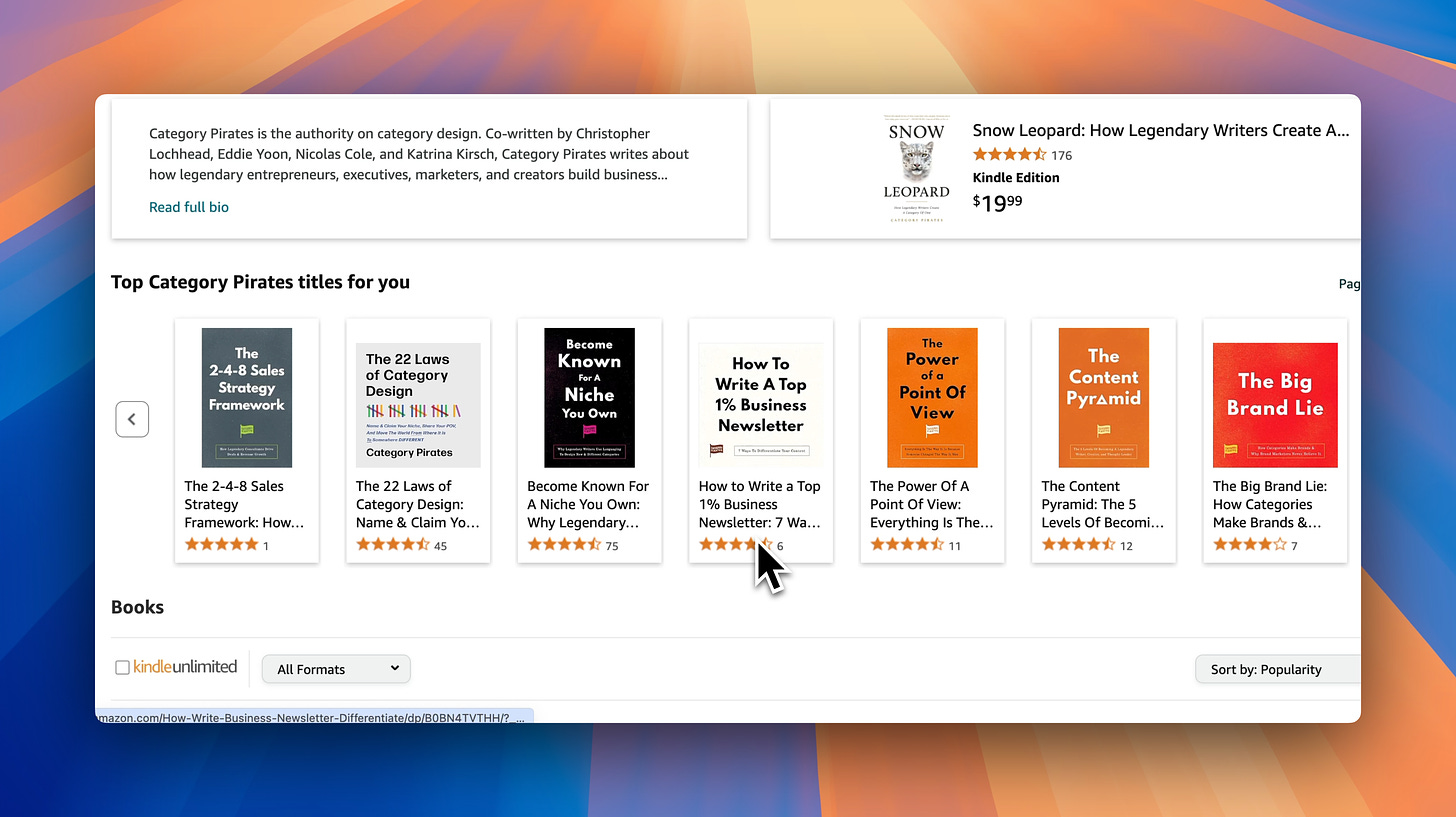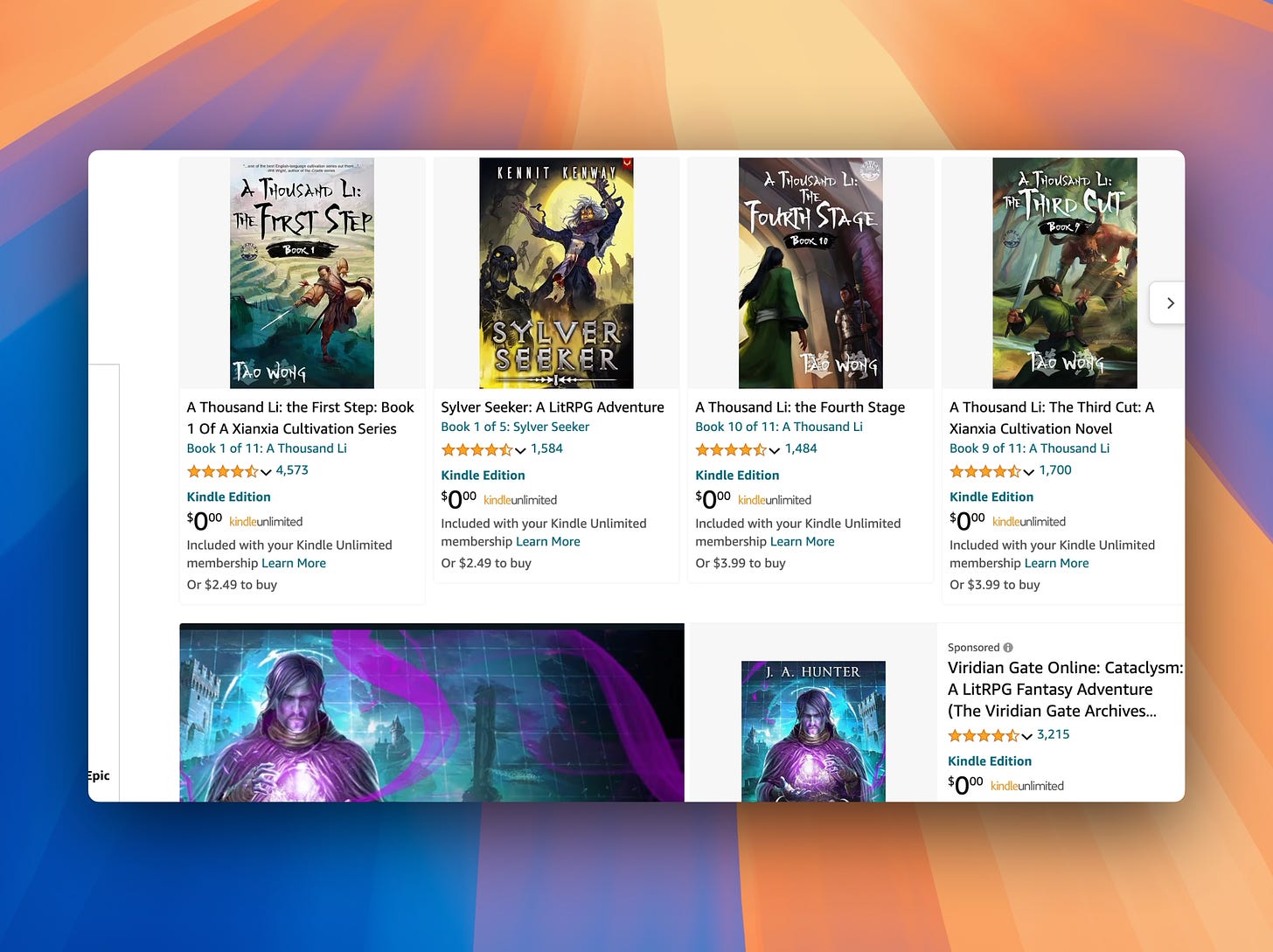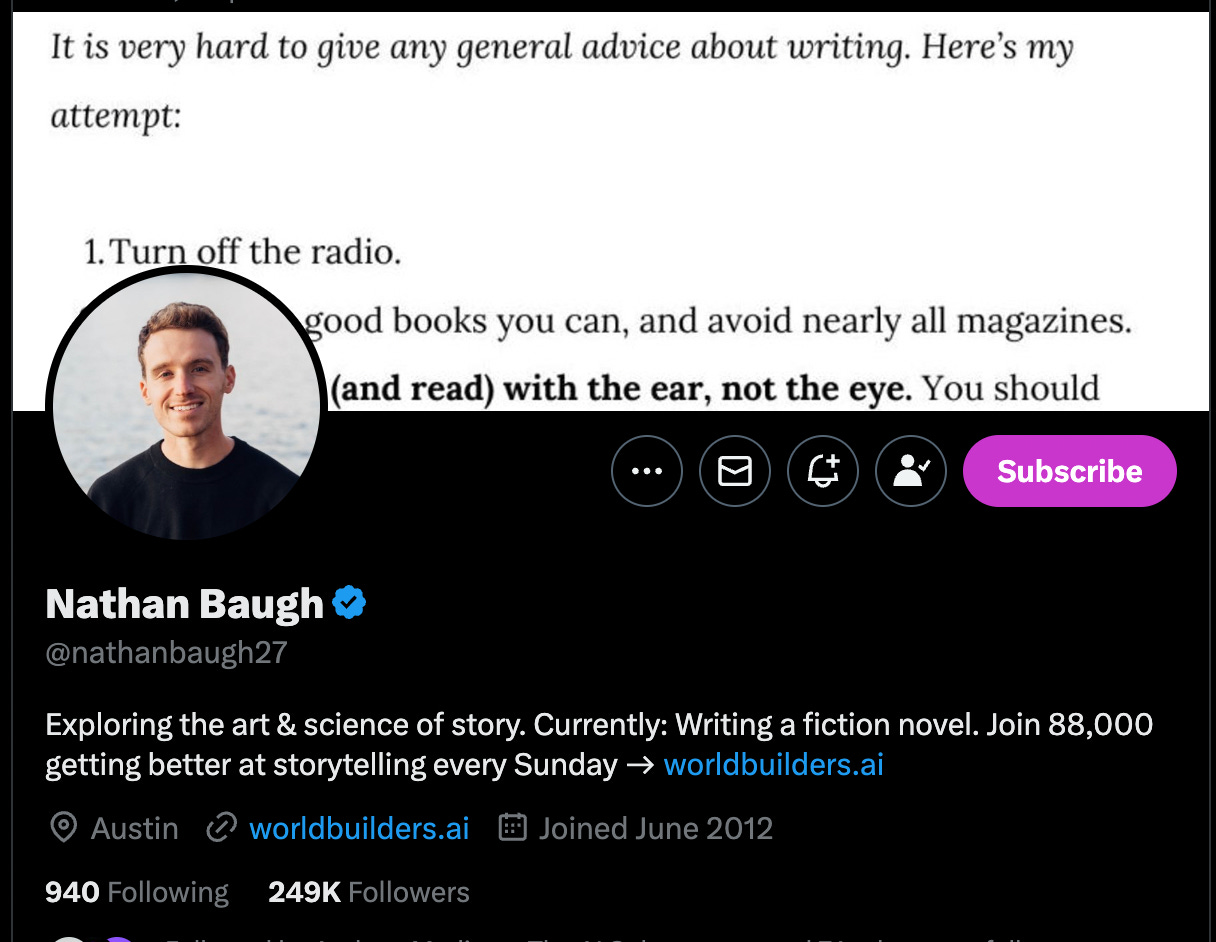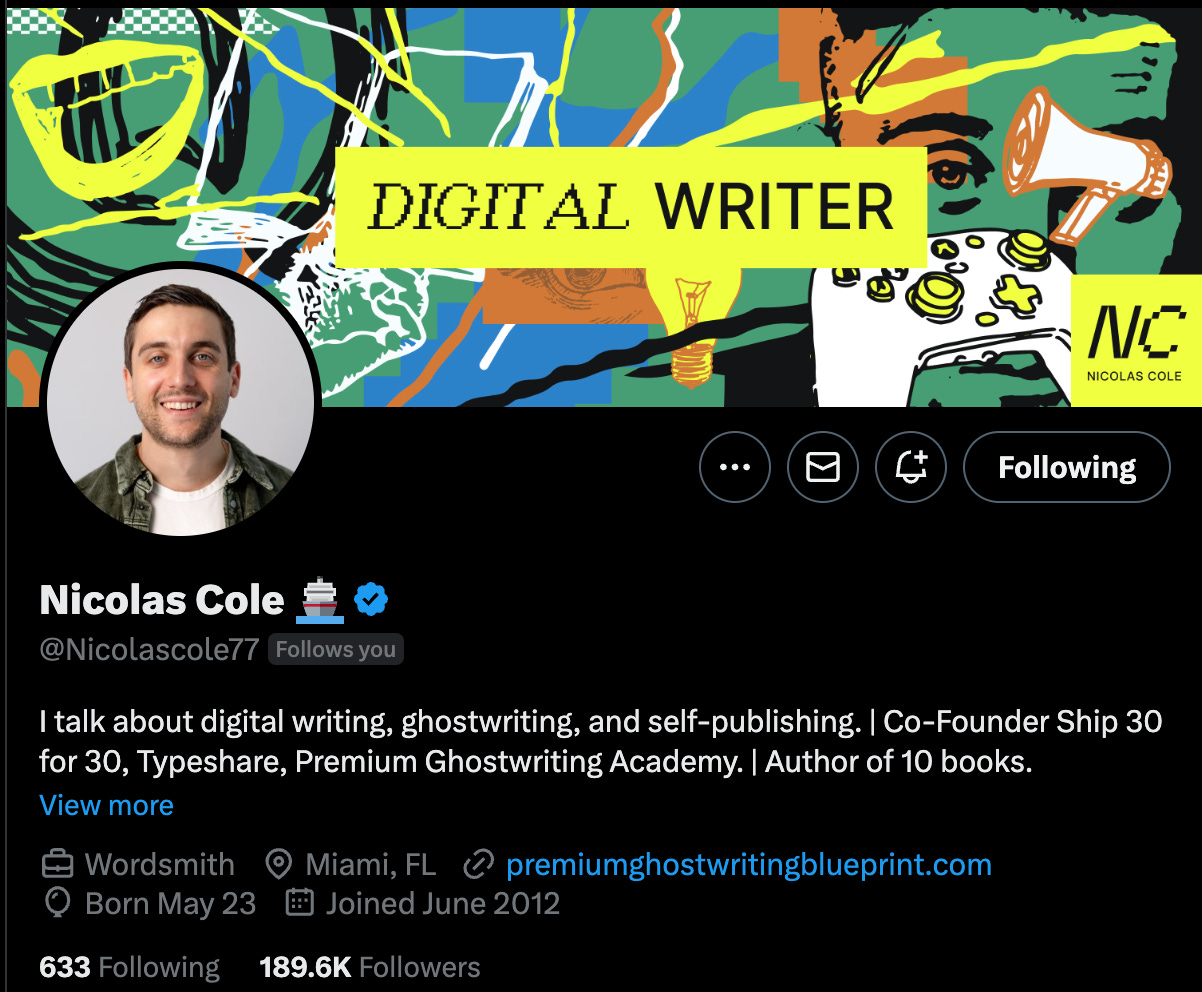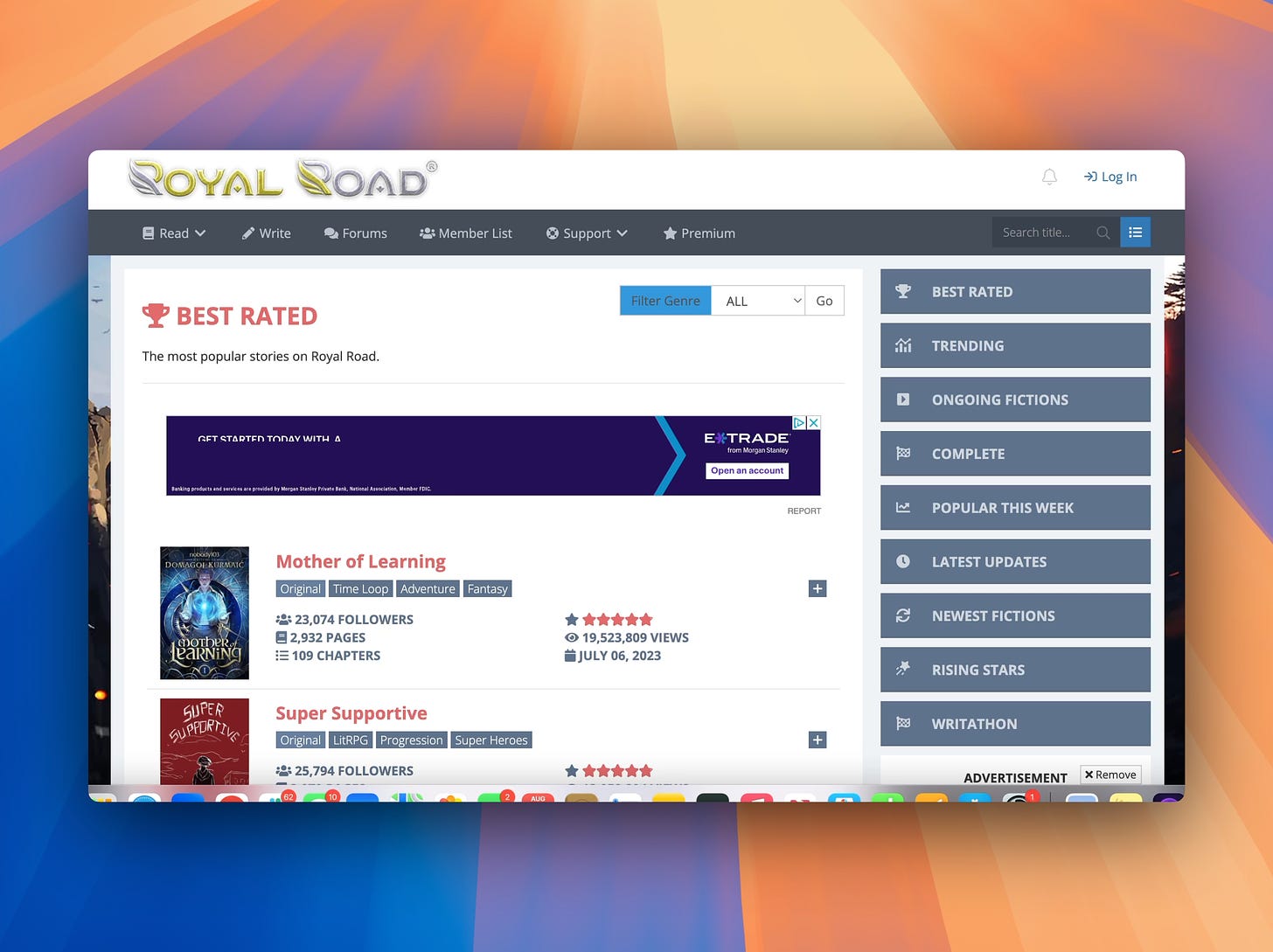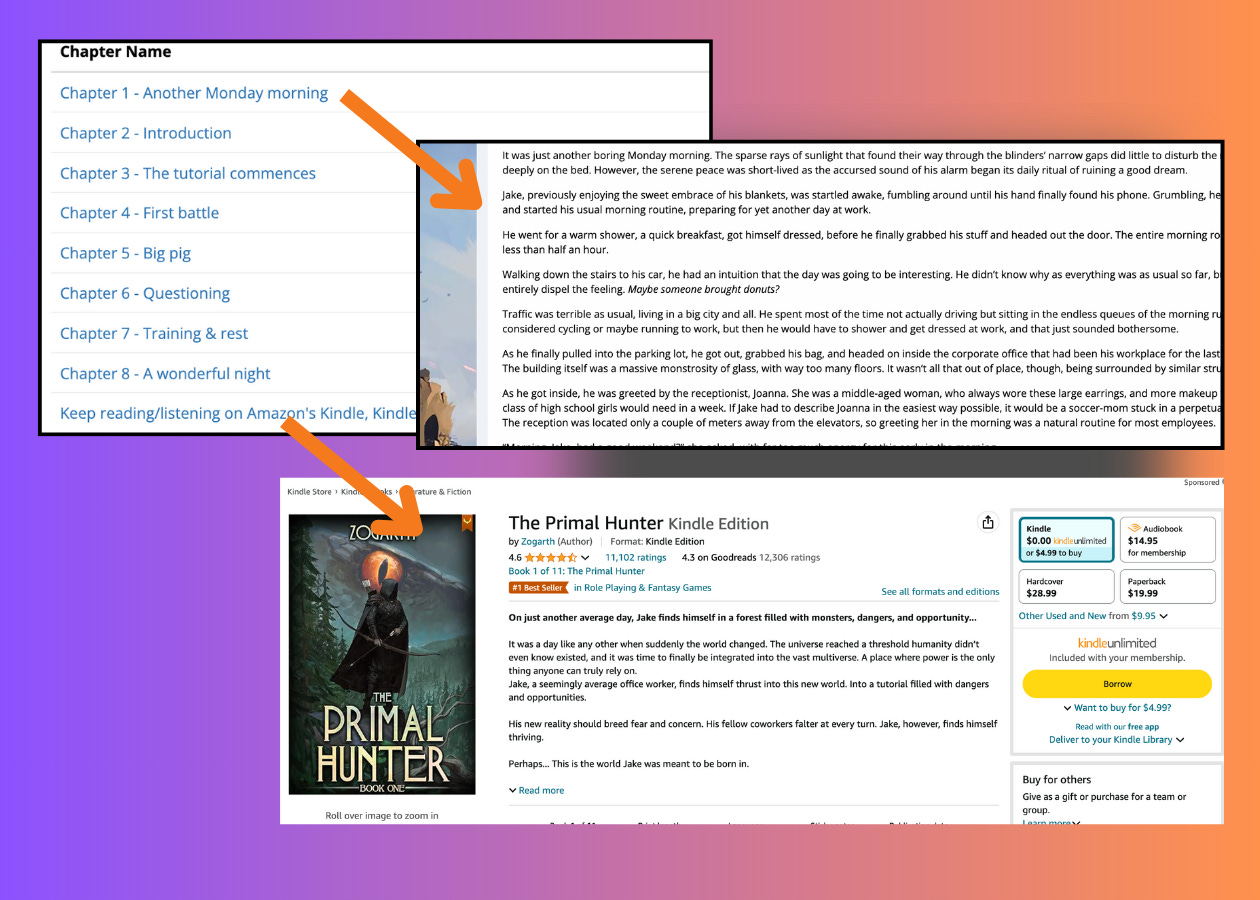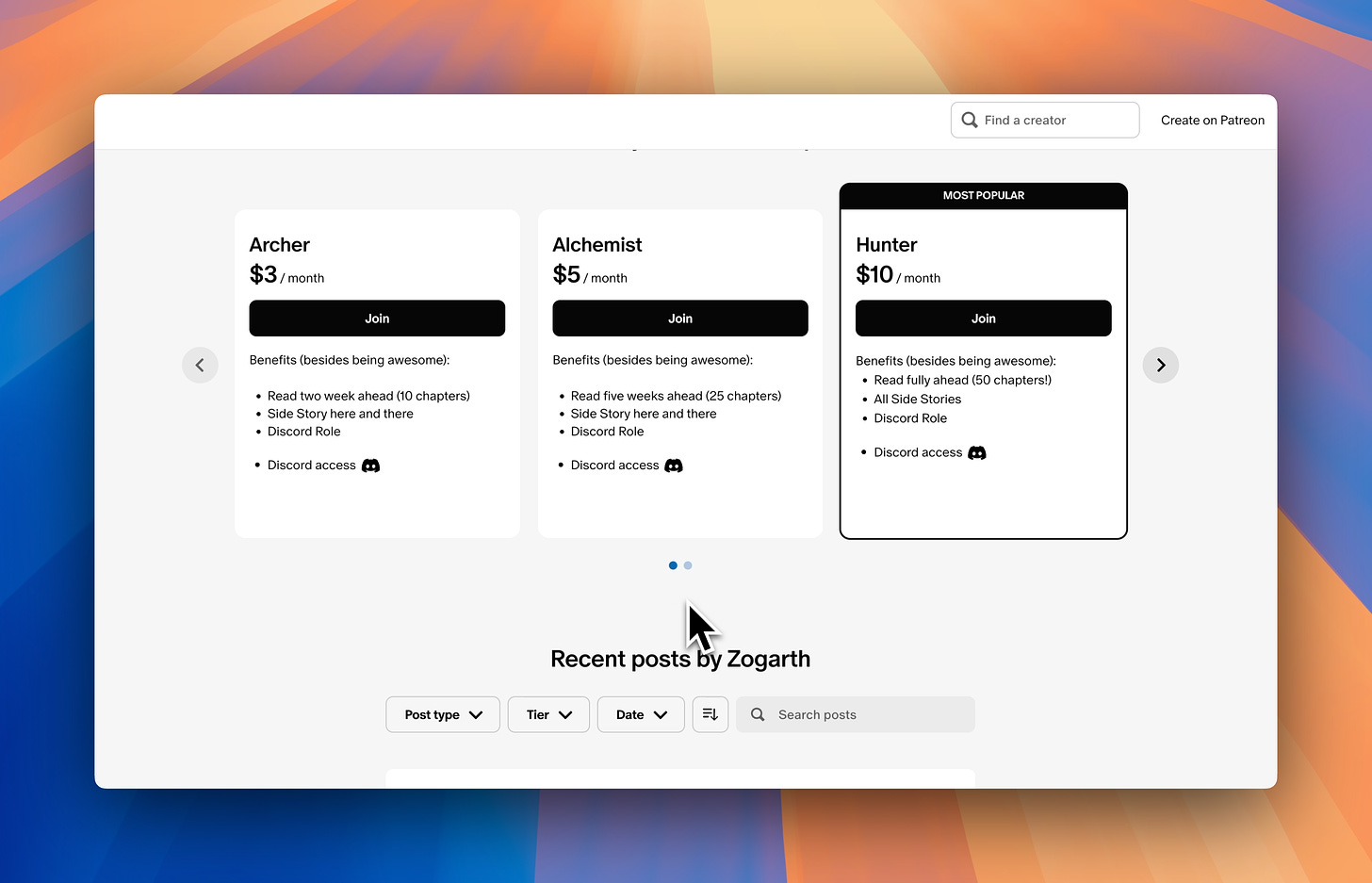Hey there!
One of the most common questions I get asked is how to build an audience as a fiction writer.
It's a smart question because in the digital economy your audience is your lifeline. Amazon's Kindle store alone adds over 1 million new titles each year. Having an audience means you don’t have to start from zero with each new release and compete with the masses.
I know the struggle.
I graduated Columbia College with a degree in fiction. It’s tough making money in fiction. Which is why I've spent over 300 hours studying the genre fiction landscape, learning what works, what doesn't, who makes the most money, and what the ideal strategy is for becoming a money-making fiction writer.
So, today I’m going to break everything I’ve learned into 7 simple steps. And at the end I will leave you with a prompt to help you monetize your fiction beyond your book.
Let’s dive in.
Step 1: Don't try to write a novel. Start by writing shorter stories.
Novels take too long in the beginning.
The feedback loop is too slow. And trying to write some epic 800-page work out the gate is too daunting of a task. Instead, start by writing shorter stories. Think 10,000 word novels.
Let’s take a look at 3 different examples.
Example 1: The Silo Series
Maybe the best example of this is Hugh Howey's short story, Wool.
Howey’s book ended up performing so well he turned it into a full-length novel, which then got turned into a series, which later got turned into an AppleTV show called Silo.
Example 2: Amazon Original Stories
Amazon has an entire short fiction category called Amazon Original Stories that are all short reads. And the biggest books in this category are around 10,000 words and are generating huge amounts of money. Hundreds of thousands of dollars of sales per month.
So you don't need to start by writing Book 1 of your 10-book epic novel series that's going to rival Game of Thrones.
Example 3: Category Pirates (Non-Fiction)
I did this in non-fiction when I was building Category Pirates, a paid business newsletter.
We would take each long-form paid newsletter and republish it as a mini-book on amazon, usually around 7,000 to 10,000 words. Incredibly effective, and ended up generating another 6 figures in revenue for our business. So, it works in non-fiction, and it works even better in fiction.
So, start small.
Publish mini-books to gather data and figure out which story arcs etc. are resonating.
Step 2: Play in a smaller, less competitive sub-category.
Almost every fiction writer I know wants to start out by playing in some mega-category.
But it's very hard for new authors to break into the major mega-categories like Mystery, Horror, Science Fiction, Romance, etc. A much easier place to start is by picking a sub-category within one of these mega-categories and going all-in there.
You would rather be a big fish in a small pond than a small fish in a big pond.
You don’t want to be a “sci-fi writer," you want to niche down and be a "Viking Sci-Fi” writer.
You don’t want to be a “romance writer," you want to be a “Cowboy Romance” writer.
You don't want to be a "thriller writer," you want to be a "Nautical Thriller” writer.
You can always level-up to those larger, broader mega-categories later—if you want to.
For example, my first fiction series is going to be in the LitRPG sub-category.
Why?
Because the reader base there is voracious and there isn't a ton of competition. It's also a sub-category where I have an information advantage because I used to be a pro gamer, so I know I'll be able to do it justice. And then my next step will be to ramp volume in this specific sub-category to become known for in the sub-category.
That's really the goal here, and a lot of fiction writers don't understand this.
So you're going to watch me not just write 1 LitRPG book, but 50 of them. I'm going to stay in that sub-category until I absolutely dominate it, and then and only then will I consider moving on to something different.
Step 3: Treat Amazon as your primary publishing platform.
If you truly want to make a living writing fiction, then the platform and game you're going to want to play is ramping volume on Amazon.
A lot of the top fiction writers on Amazon don't even have big social followings on other platforms. They just pump out a book a month, or a book a quarter on Amazon consistently for years. So, this is your game.
The big decision here you need to make is: “Do I publish only on Kindle Unlimited or "Go Wide" on more platforms?”
If you want to make a living as a serial genre fiction writer, chances are you're better off going exclusive with Kindle Unlimited—because most of the serial genre fiction readers are Kindle Unlimited subscribers. For example, like 90% of the readers in the LitRPG sub-category are Kindle Unlimited subscribers. So it doesn't make as much sense to "go wide" in that sub-category.
If you don’t know where to start, you can use a tool like Publisher Rocket to research and better understand your chosen sub-category.
Now, that said, you still want to…
Step 4: Build an organic following on X, LinkedIn, and Medium.
You can build an audience for your fiction by writing fiction on social platforms.
But I have found it's actually a LOT easier to build an audience by writing non-fiction ABOUT how you write fiction. For example:
"3 Tricks To Write Better Dialogue (According To John Grisham)"
"Create Memorable Characters in 15 Minutes"
"How To Hook Your Reader: 5 Proven First Page Techniques"
There's a ton of overlap here.
Nathan Baugh is a great profile to study. He's built a huge audience writing about storytelling techniques, and he's planning on leveraging this audience for his own fiction series'—of which there will be a lot of overlap.
I am doing the same thing.
A lot of my social following is around non-fiction writing, but I know a sub-set of my audience will be curious to read my fiction when it comes out. (If that's you, drop me a comment here so I know who you are!)
I have found this to be a much more effective way of building an audience rather than trying to write fiction on social platforms.
Step 5: Find your Royal Road and get some early feedback.
There are free platforms where people publish web novels and serial fiction all the time.
In my opinion, I would just skip straight to Amazon. But if you want to get your feet wet, these platforms can be a great place to start.
Many of the most popular LitRPG books, for example, started for free on Royal Road then went to Amazon later. Same with Wattpad and romance novels.
The strategy here is you actually publish early versions of your work-in-progress just to get some eyeballs and FEEDBACK.
It's not even about building an audience or making money. It's about stress-testing the quality of your story and whether or not it's interesting to readers.Then, once you finish writing the story, you've gathered feedback, and you've tightened it up and are ready to publish it, you can leave the first couple chapters up for free and drive to the paid product on Amazon.
As an example, check out The Primal Hunter by Zogarth (scroll down for the free chapters).
One thing to note, if you go exclusive with Kindle Unlimited, you can only leave up 10% or less of your work somewhere else on the web for free.
But for example, all the most popular LitRPG stories have the first few chapters still up for free on Royal Road and then after like Chapter 3 they drive readers to buy the book on Amazon to keep reading. This is an easy way to expand your reach without breaking Amazon’s rules.
Step 6: Build an email list and/or a Discord.
The 2 most valuable assets you can own as a fiction writer are: an email list, and/or a Discord server.
Why? Because these are direct lines to your readers.
An email list lets you:
Announce new releases directly to fans
Share behind-the-scenes content
Run exclusive promotions or pre-orders
A Discord server allows you to:
Create a community around your work
Get instant feedback on ideas
Host live Q&As or writing sessions
The key is to make it easy for you to get access to your readers and for your readers to get access to you (and your books).
Put CTA links to one or both of these assets in the front and back of every book, on your author bio on Amazon, in your social media profiles, and every post you make online. Every reader who joins is a direct connection you own. And when you own them, you can play the Amazon algorithm game.
Amazon's algorithm to promote your books primarily comes down to 2 metrics:
How much traffic do you drive to your books from external sources (so X to Amazon, or LI to Amazon, or Medium to Amazon, or your email list to Amazon)
And what % of those people not only click, but buy.
The higher that ratio is, the more Amazon is going to recommend your book to other people on Amazon's platform because there's signal "when people click on this book and check it out, they buy it."
So that's why building an email list, or more specifically a Discord server around your writing who all click and buy can help get your book going within Amazon's ecosystem.
Step 7: Bonus, monetize with "side-quest content" on Patreon.
Lastly, if you want a little tip for monetizing your fiction in new and unique ways, here it is:
Create a Patreon and fill it with content you don't cover inside your novels or short stories, but are related to a series or world you're building. A lot of genre fiction writers do this and monetize by allowing paying subscribers to "read ahead."
For example, Zogarth allows you purchase anywhere from 5 to 50 chapters ahead. Plus he throws in some side stories and Discord access like we talked about in the last step.
Reading ahead is one benefit.
But I see an opportunity to take things a step further, and actually monetize other pieces of content that maybe didn't make it into your core story—or are still interesting but you would never bog down a story with that much detail.
For example:
Planet maps
Backstories of main characters, supporting characters, or just interesting random characters or factions within your stories
Backstories of locations, how worlds or parts of worlds came to be
Item lists
Word definitions or dictionaries
Even side-quest stories that don't really have a place in your main work, but are still great stories you want somewhere
This is the perfect place to leverage AI to generating ideas for different side-quest asset. I’ve included a prompt for you below if you want to give this a try. Your core readers would love to pay you a little extra money to read all this extra content, and it can be a great way of capturing 2x more revenue as a fiction writer.
Here’s the prompt:
Keep reading with a 7-day free trial
Subscribe to Fiction Writing With AI to keep reading this post and get 7 days of free access to the full post archives.

